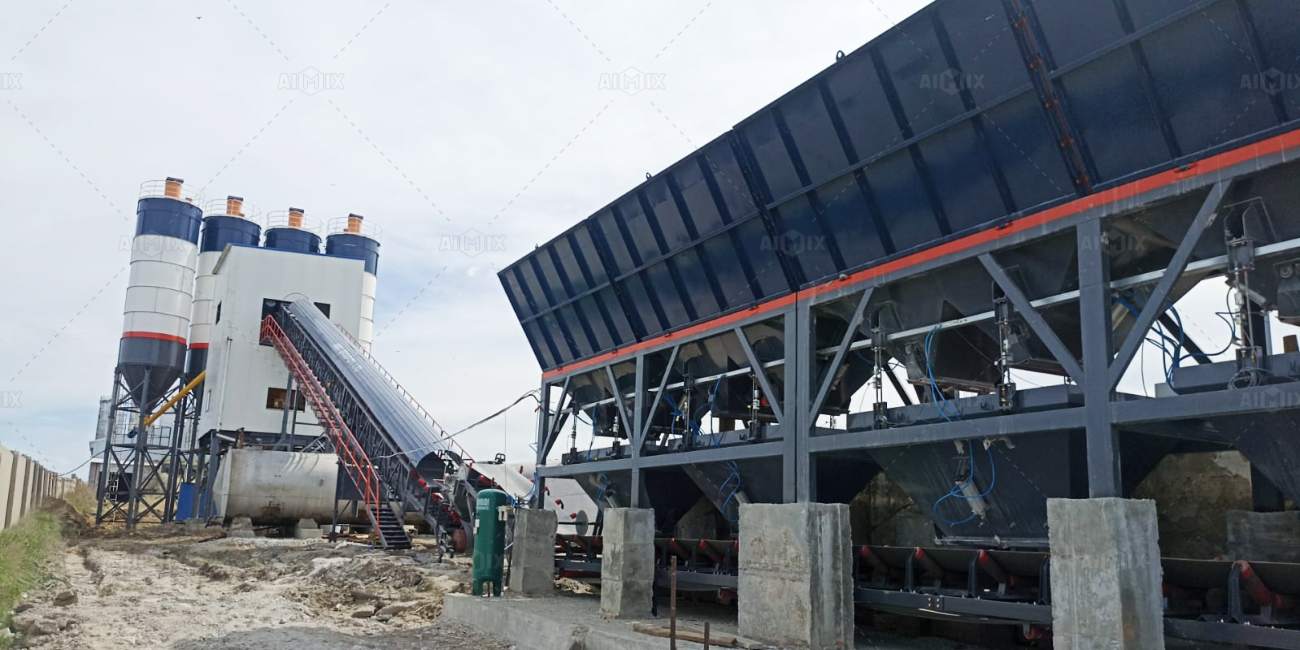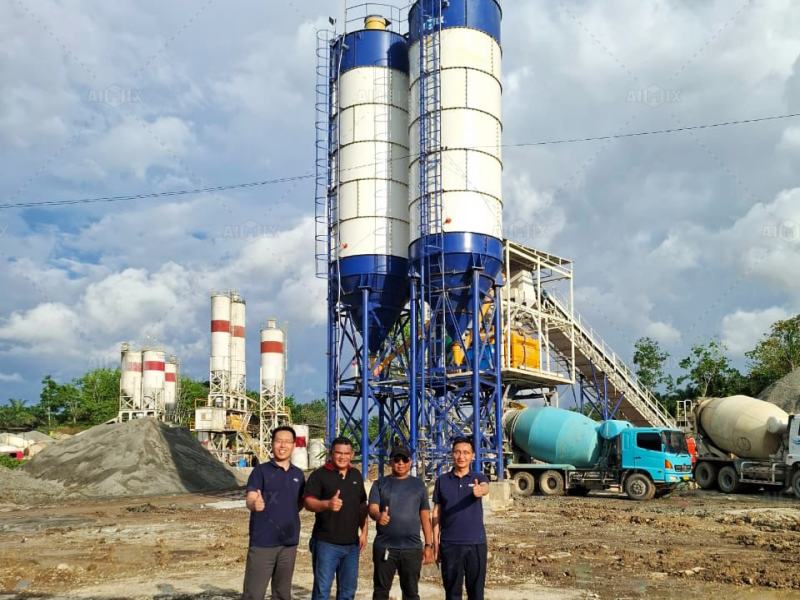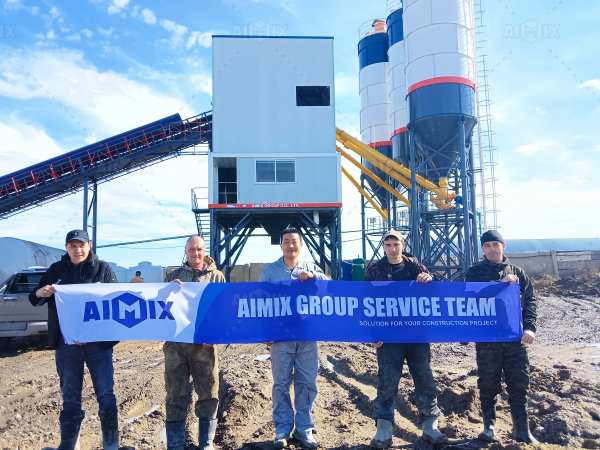The construction industry has evolved significantly over the past few decades, with new technologies and machinery revolutionizing how projects are designed, executed, and completed. Among the most significant innovations in construction machinery are concrete batching plants, which are essential for producing consistent and high-quality concrete on-site. As demand for reliable and cost-effective solutions rises globally, innovative concrete batching plant suppliers are stepping in to meet this need, shaping the future of construction in exciting ways.
Concrete batching plants are designed to combine different ingredients (like cement, water, sand, aggregates, and admixtures) in precise proportions to create concrete that meets specific requirements. Depending on the scale and scope of the project, there are various types of batching plants available, including stationary concrete batching plants and mobile concrete batch plants. Suppliers who offer these products play a critical role in driving innovation and improving the overall efficiency of construction projects.

The Role of Concrete Batching Plant Suppliers
Concrete batching plant suppliers provide a range of services, from offering high-quality machinery to delivering technical support, after-sales services, and training. With the increasing demand for faster and more efficient construction methods, these suppliers have innovated to produce equipment that is not only durable but also offers flexibility and advanced technological features.
One key innovation is the adaptability of batching plants, where suppliers now offer a wider range of options, including stationary concrete batching plant for large-scale operations and mobile concrete batch plants for on-the-go projects. As construction projects become more varied and diverse, the need for flexible, reliable equipment has never been more critical. The rise of mobile batching plants has particularly changed how smaller and medium-scale projects are executed, providing contractors with greater flexibility and cost savings.
Stationary Concrete Batching Plants: Meeting Large-Scale Needs
Stationary concrete batching plants are the backbone of large-scale construction projects, such as highways, bridges, and commercial buildings. These plants are designed for high-volume production and provide a stable, consistent output over long periods, making them ideal for extensive construction sites that require large quantities of concrete.
Stationary batching plants are often favored by construction companies working on projects where speed and consistency are essential. These plants can be customized to accommodate various requirements, including different types of mixing systems, scales, and configurations. Moreover, stationary plants can be equipped with automated control systems, which help reduce labor costs and improve the accuracy of concrete production.
With the rise of sustainability concerns, many suppliers have incorporated eco-friendly features into their stationary plants, such as energy-saving technologies and dust control systems, which contribute to a greener, more sustainable construction process.

Mobile Concrete Batch Plants: Flexibility for Smaller Projects
While stationary concrete batching plants dominate large-scale projects, mobile concrete batch plants are becoming increasingly popular for smaller, remote, or temporary construction sites. As the name suggests, mobile plants are designed for easy transportation, allowing construction companies to quickly set up the plant on-site and begin production without the need for permanent installation.
Mobile batching plants are particularly advantageous for projects that require concrete in multiple, dispersed locations. For example, road repairs, residential developments, and even infrastructure work on smaller scales can benefit from mobile plants. These plants can be set up and dismantled quickly, reducing downtime and improving project timelines.
One key advantage of mobile concrete batch plant is their ability to provide high-quality concrete without the need for additional infrastructure or facilities. Suppliers offering mobile plants also provide options that can be customized to meet specific site needs, making them a versatile solution for a wide range of construction projects.
Types of Batching Plants: A Growing Variety of Options
When it comes to types of batching plants, suppliers now offer several variations, each tailored to meet the unique needs of different construction projects. Here are some of the most common types of batching plant available:
Wet Mix Batching Plants: These plants are used for mixing and batching concrete in a wet form. They are ideal for projects that require a high degree of consistency and precision in concrete production. Wet mix plants are often employed in projects where the mix needs to be transported over long distances.
Dry Mix Batching Plants: Unlike wet mix plants, dry mix plants produce a dry mixture that is combined with water at the site. This type of plant is commonly used for smaller projects where mobility and cost-efficiency are key priorities. Dry mix plants are often preferred by smaller construction companies or projects in remote locations.
Mobile Batching Plants: As mentioned, these are highly portable and designed for on-site concrete production. They are ideal for projects with limited space, short timelines, or multiple locations.
Stationary Batching Plants: These are fixed and designed for large-scale projects. They offer high production rates and are usually equipped with multiple silos and mixing units, making them suitable for heavy-duty operations.
Modular Batching Plants: These are pre-assembled, modular units that can be easily transported and assembled. They are designed to be more flexible than traditional stationary plants and provide an option for medium-sized projects.

Innovative Features Enhancing Concrete Batching Plants
Today’s concrete batching plants come with various innovative features that help enhance their efficiency, quality, and sustainability:
Automation and Control Systems: Modern concrete batching plants are equipped with state-of-the-art automated systems that allow for precise control of the entire production process. These systems minimize human error, reduce waste, and ensure consistent concrete quality, even with large-scale production.
Energy Efficiency: Many of today’s suppliers focus on making batching plants more energy-efficient. Features like heat recovery systems, reduced power consumption, and eco-friendly technologies contribute to lowering the plant’s environmental impact.
Real-Time Monitoring: Real-time monitoring of plant performance allows operators to make data-driven decisions, optimize production, and troubleshoot any issues that arise.
Customizable Solutions: Leading suppliers offer customizable options that allow construction companies to tailor the plant to their specific needs, from plant size to output capacity and storage requirements.
Conclusion
As the construction industry continues to expand, the demand for efficient, high-quality concrete batching plants is growing rapidly. Innovative concrete batching plant suppliers are at the forefront of this change, offering cutting-edge solutions like stationary concrete batching plants, mobile concrete batch plants, and a variety of other batching plant types to meet the diverse needs of modern construction projects.
By embracing technological advancements and providing flexible, cost-effective solutions, these suppliers are not only helping contractors streamline their operations but also driving the future of construction, making projects faster, more efficient, and more sustainable.